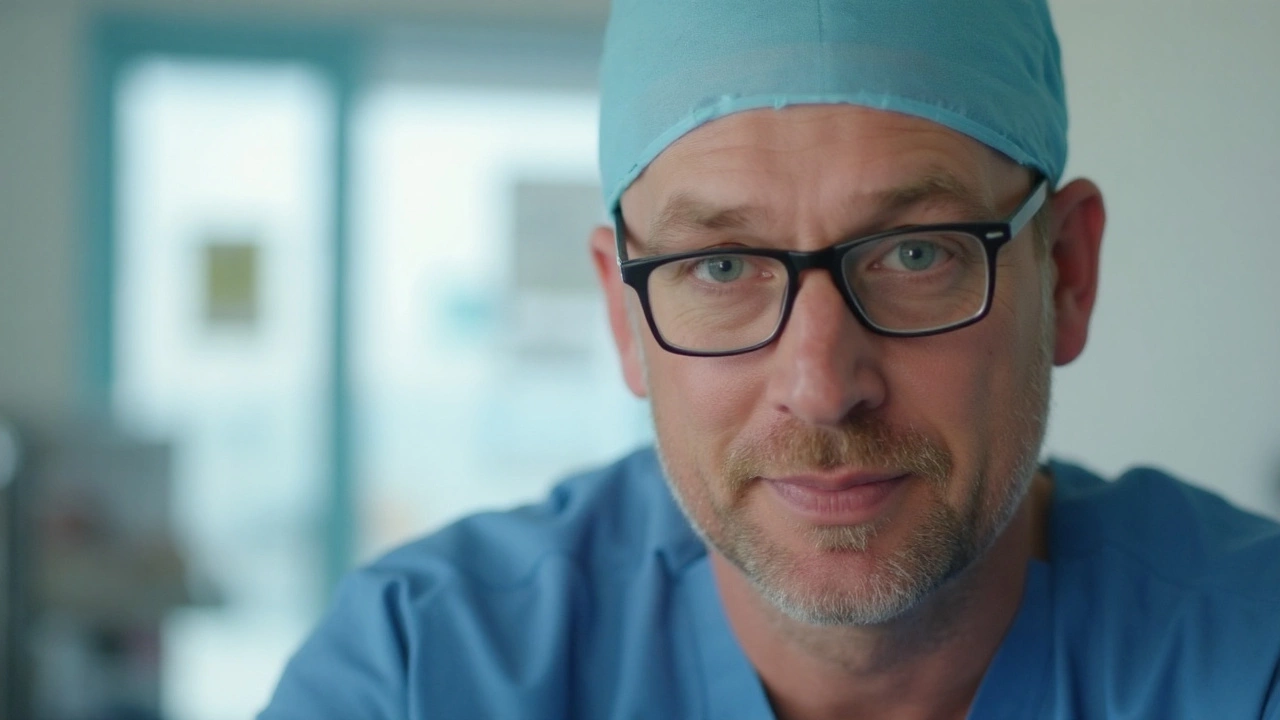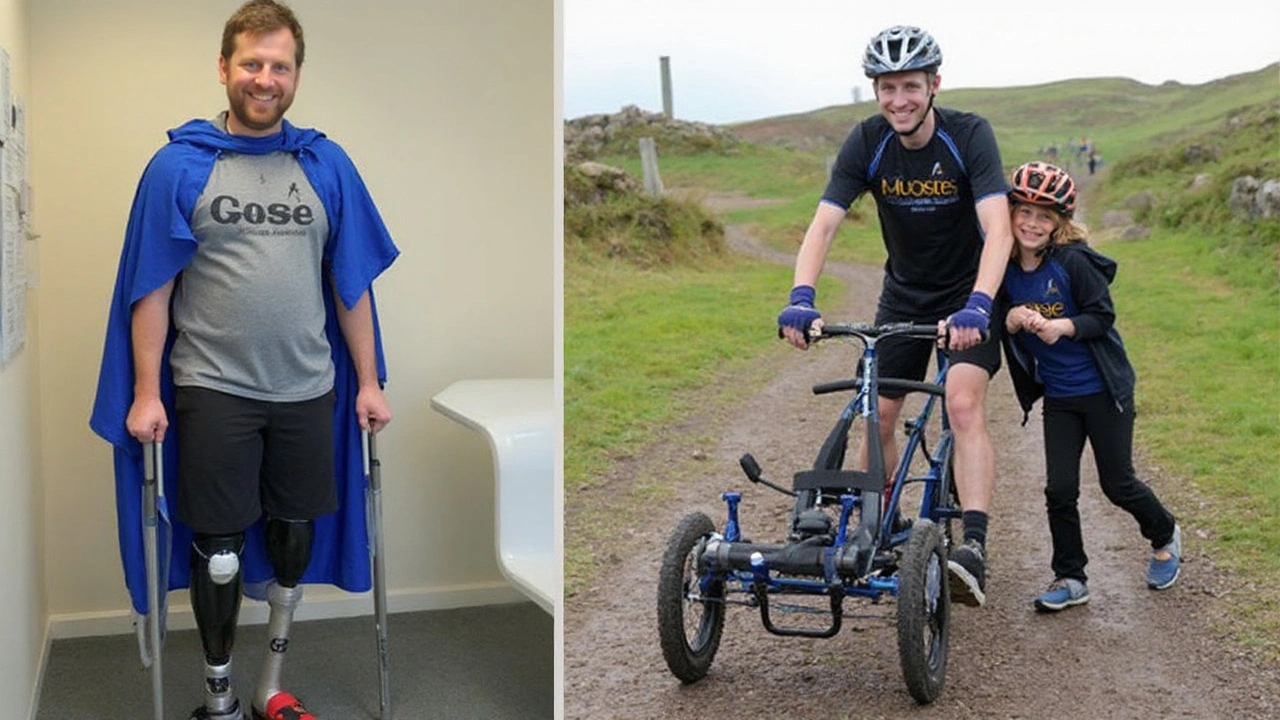5 Sep 2025
- 0 Comments
The surgeon who had performed hundreds of amputations found himself on the other side of the scalpel. In May 2019, Truro-based vascular specialist Neil Hopper, 49, lost both lower legs to sepsis. Just over a year later, he was back in theatre at Royal Cornwall Hospitals NHS Trust—steady hands, same clinical standards—this time with a life experience his patients know all too well. That rare return earned him the Against All Odds title at the Amplifon Awards for Brave Britons 2020, revealed in a BBC Breakfast virtual ceremony during the pandemic.
His recognition isn’t a sentimental nod. It marks a hard, technical comeback in one of medicine’s most demanding specialties. Vascular surgery asks for precision, stamina, and the ability to make fast, high-stakes decisions. Hopper found a way to keep doing that job after a life-changing operation, showing that disability and frontline surgical work aren’t mutually exclusive.
From surgeon to patient—and back again
Sepsis turned a routine workday into an emergency few see coming. The condition can spiral quickly, causing organ failure and, in severe cases, limb loss. The UK Sepsis Trust estimates around 245,000 people are affected each year in Britain, with tens of thousands of deaths. Hopper’s case reached the point where both lower legs had to be removed below the knee. For many, that ends a surgical career. He decided it wouldn’t end his.
Rehabilitation took months: prosthetics training, conditioning, and a careful rebuild of balance and endurance. Returning to the operating theatre meant more than walking again. It meant proving, case by case, that technique and judgement remained intact—then adapting workflows so the team could work safely and efficiently with his new reality.
None of that happens solo. Colleagues adjusted schedules, roles, and kit where needed. Occupational health and theatre managers looked at the layout and the flow: how to reduce fatigue, where to position instruments, how to make mobility smooth between scrub, table, and imaging. The mission wasn’t to lower standards but to match the working environment to the surgeon’s capability—an approach that’s now standard across many NHS roles under reasonable adjustments.
That shift brought something else into the room: lived experience. Hopper had spent years guiding patients through decisions about limb salvage, bypasses, and amputations. After his own surgery, those conversations changed tone. Patients facing a similar future could ask detailed questions about prosthetics, pain, recovery milestones, and the headspace it takes to push through. Empathy wasn’t theoretical anymore; it was practical and precise.
For the hospital, his return sent a clear message about retention and inclusion. NHS teams lose skills when clinicians’ careers are cut short by illness or injury. Keeping a senior surgeon—someone who knows the pathways, the operating lists, the emergencies—saves training years and stabilizes services. Hopper’s comeback showed the business case and the human case can align.

Why this recognition matters
The Amplifon Awards for Brave Britons celebrate people who face down extraordinary challenges and keep going. In Hopper’s category—Against All Odds—the spotlight falls on determination after a major setback. The 2020 ceremony went online because of COVID-19, but the format didn’t blunt the point: courage can be quiet, technical, and sustained, not just dramatic and one-off.
In vascular surgery, that perseverance ripples outward. Patients weighing amputation versus limb-saving options often battle fear and uncertainty. Seeing a consultant who rebuilt his own life after limb loss changes the frame. It doesn’t romanticize hardship; it makes the path visible. Colleagues say that perspective helps teams keep communication clear in the most pressured moments—when a leg can’t be saved, when time is running, when families need straight answers.
His journey also adds weight to a broader conversation in healthcare: how to support clinicians with disabilities without quietly shunting them to the sidelines. The evidence is simple: when workplaces are adapted, talent stays. Examples commonly used in theatres for clinicians with mobility impairments include adjustable operating tables, tailored step-free access, anti-fatigue flooring, repositioned monitors, and duties that pace strenuous cases with lighter sessions. These tweaks aren’t favors; they’re infrastructure that lets expertise do the work.
There’s a public health angle too. Sepsis remains under-recognized outside hospitals, despite rapid-decline warning signs like slurred speech, extreme shivering, no urine, severe breathlessness, mottled skin, and the feeling of impending doom. Stories like Hopper’s keep the condition in public view, which matters for early treatment and survival.
The award won’t define his career, but it does freeze one thing in time: a decision after catastrophe to return to the craft. In a year when the NHS was stretched by the pandemic and care teams had to rewrite their routines overnight, that steady resolve looked familiar across wards and clinics. It’s why this particular honor resonated beyond Cornwall. It wasn’t just about one surgeon’s comeback. It was a picture of how a system holds onto skill, adapts, and carries on—one operating list at a time.
